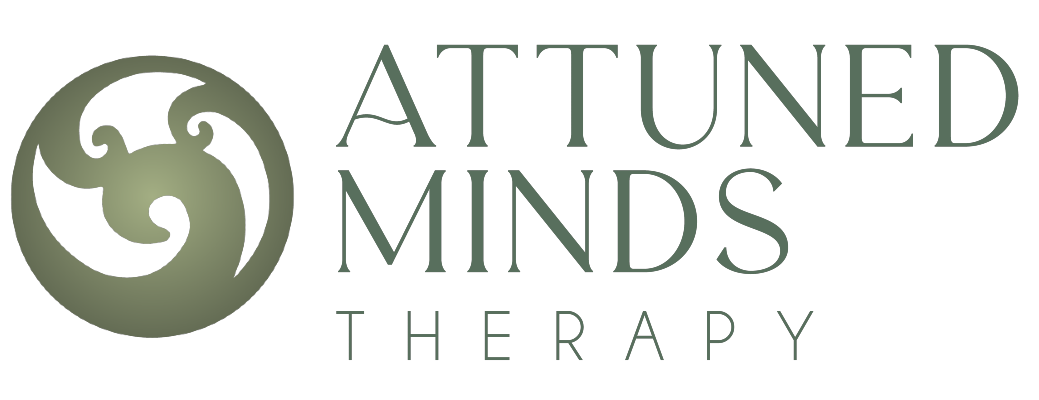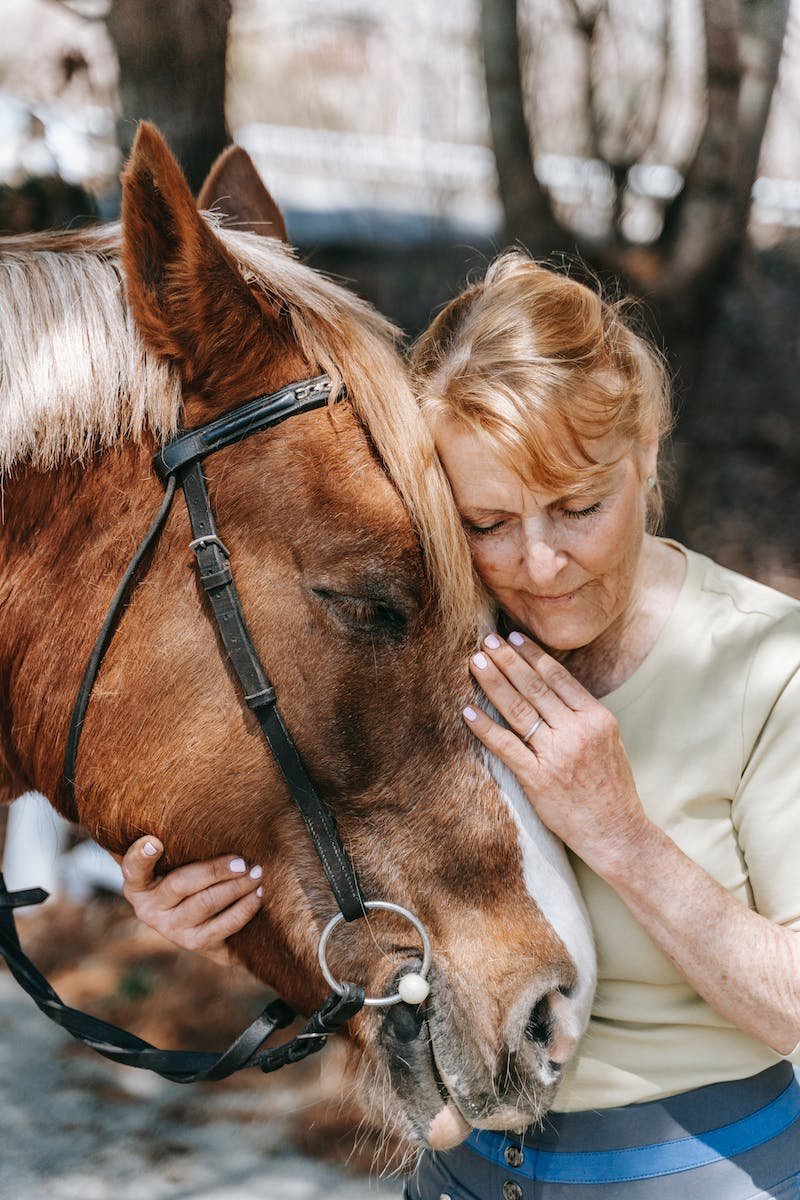Equine Therapy
What Is Equine Therapy?
Equine-assisted psychotherapy (EAP) is a form of animal-assisted therapy that utilizes hands-on interactions with horses and talk therapy to better achieve mental health treatment goals. Horse-assisted therapy is an experiential modality, meaning it is based on in-the-moment experiences as a method for facilitating therapeutic change.
In equine therapy, the horse acts as a metaphor for relationships, and interactions in this context can increase the awareness of clients’ thoughts, words, and actions. These activities can help them learn about themselves, recognize patterns of behavior, define healthy relationships, and improve communication, among other benefits. Sessions can be for individuals, couples, and even groups or families.
Equine therapy is a valuable option for treating a wide range of mental health challenges including but not limited to:
anxiety and depression, and post-traumatic stress disorder
attention deficit hyperactivity disorder
substance use disorder, eating disorders
relationship dynamics like anger and communication issues, infidelity, and betrayal
life transitions like premarital counseling, parent-child relationships, grief, and loss
What Do Sessions Look Like?
Our Equine-facilitated psychotherapy sessions utilize a team approach in which a mental health professional and an Equine Specialist (ES) work together with the client(s) and horse(s). Sessions do not involve horseback riding, but clients interact directly with horses by participating in ground-based activities.
Therapy sessions metaphorically represent what clients are struggling with—as the horse’s natural reactions and behaviors prompt clients’ inner reflections on their own emotional reactions and behaviors. Clients then process these experiences with their mental health professional during the equine session and/or at a later time, during talk therapy sessions.
Equine therapy invites clients to work on whatever is most beneficial for their mental health goals. Sessions provide a safe space to connect, experiment, and discover new opportunities for change.
Why Our Approach To Healing Works
Horses are uniquely suited to serve in the role of therapy animals due to their abilities to observe and respond to social behaviors, including human verbal and non-verbal communication. As prey animals, horses are very attuned to their environment, including any people or animals near to them.
It can take time to develop a trusting and cooperative relationship with a horse. How and in what ways clients and horses build a relationship is explored during equine-assisted therapy sessions and used as a part of the therapeutic process.
Equine-assisted activities can provide opportunities for learning about ourselves through trial and error. A horse’s number one goal at all times is to ensure their safety and survival, so they’re good at giving you immediate feedback. An individual might come into a session with a horse with one expectation for how their outward behavior appears, but the horse's reaction to them indicates otherwise.
Horses “attend carefully to minute-by-minute changes in body language—of humans, other horses, or other predators—and they respond with immediacy and honesty.” (1) EAP has the potential to increase confidence, self-esteem, resourcefulness, and assertiveness while simultaneously reducing undesirable behaviors and improving emotional regulation.
Equine-Assisted Therapy Case Example
I worked with a young woman (let’s call her Lindsay) and her family who sought out equine therapy to address “Lindsay's anger" and her pattern of becoming frustrated. Through partnering with the horses, Lindsay noticed that the horses always prioritized their own needs and safety first.
Through processing conversations, Lindsay connected what she noticed about the horses and what she was experiencing in her body. Lindsay learned to recognize and listen to her emotions by watching how the horses took care of themselves by adapting based on what they needed at any given moment.
Equine therapy facilitated Lindsay's shift from thinking she "needed to control her anger" to learning how she could better care for herself and what she needed when she felt angry or frustrated. Through the equine activities, she was able to practice different ways of responding to her emotions that were more in line with her values.
My Background In Equine Therapy
I discovered a love of horses, horseback riding, and the benefits of these intelligent creatures through my own therapeutic journey almost ten years ago. I specifically pursued a graduate program at Nova Southeastern University because of its equine-assisted therapy research and program.
I have had first-hand experience seeing how useful this modality can be. Professionally, I’ve been facilitating equine work since 2017, and I focused my dissertation on this work as well.
My dissertation research revealed that this type of therapy facilitates a unique type of change, specifically, embodied experiential change (2). Embodied, experiential change describes how clients can experience shifts in their cognitive, physiological, emotional, and experiential processes.
Equine therapy provides clients with the opportunity for trial-and-error learning through hands-on experience, which clients can feel in their bodies and therefore recall with ease. This combination can be quite impactful and useful for clients looking to address their mental health and make changes in their lives.
Additional Details About Horse-Assisted Therapy
No horse experience is necessary for equine-assisted psychotherapy sessions. There will be no horseback riding and you will not be learning (nor are you required to know) any horsemanship skills.
Children aged nine and up, teens, adults, and older adults are all suited for equine-assisted therapy. Children must be old enough to follow safety instructions and treat horses with respect. EAP sessions are most effective when children are old enough to understand metaphors. Sessions can be for individuals, couples, or groups.
Closed-toed shoes are required as well as outdoor protection like sunscreen, hats, bug spray, and weather-appropriate clothing. Long pants are recommended.
Therapy sessions are held at a barn in Longwood, Florida. We hold sessions rain or shine, though we are required to pause sessions in the case of thunder and lightning.
Being fearful of horses isn't a deal breaker. Some people have sought out EAP knowing they are hesitant about horses, yet they’ve had very effective and meaningful therapeutic encounters. However, we do not recommend EAP sessions if you are highly allergic to horses or the barn setting.
Equine Therapy Can Be A Powerful Part Of Your Therapeutic Journey
Working on our mental health can be hard, but equine-assisted psychotherapy is a very unique form of treatment that provides multiple opportunities for therapeutic change. If you are interested in EAP sessions, give us a call at 407-502-2635 and we will be happy to provide a free 15-min consultation to discuss how this experience can aid your therapy journey.
Green, S. (2014). Horse sense: Equine assisted single session consultations. In M. F. Hoyt & M. Talmon (Eds.), Capturing the moment: Single-session therapies and walk-in service (pp. 425-440). Crown House Publishing.
Lowry, C. S. (2023). Straight from the Horse’s Mouth: A Thematic Analysis Exploring Client and Practitioner Perceptions of an Equine-Assisted Family Therapy Session. Nova Southeastern University ProQuest Dissertations Publishing. 29991565.










